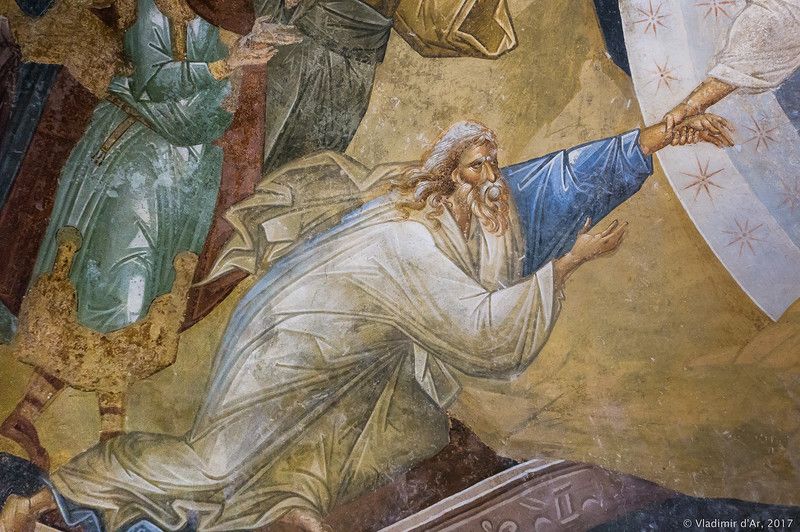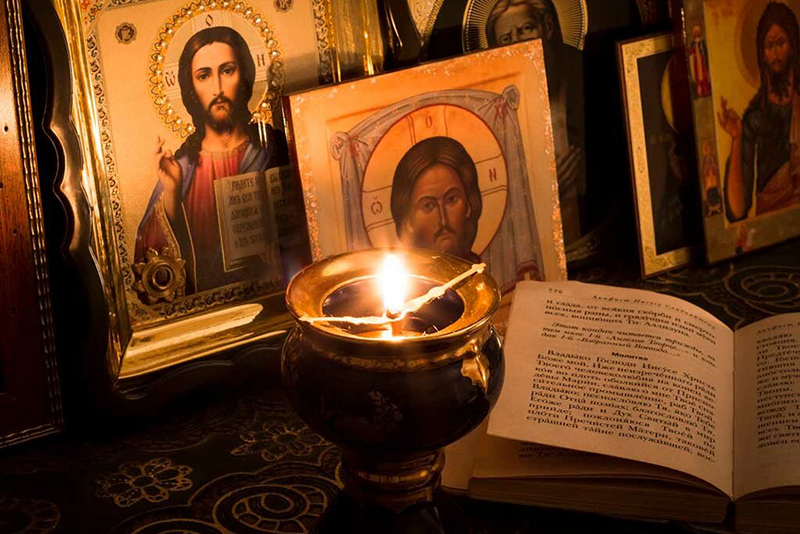
Is there a sin that the all-merciful God will never forgive? The answer is yes. However, not everything is as simple as it looks.
“Therefore I tell you, people will be forgiven for every sin and blasphemy, but blasphemy against the Spirit will not be forgiven. Whoever speaks a word against the Son of Man will be forgiven, but whoever speaks against the Holy Spirit will not be forgiven, either in this age or in the age to come” (Mt 12:31-32).
This is what Christ answered to the Pharisees, who accused Him of connections with the devil. The state of their souls made it impossible for them to believe in God Who became man. Therefore, the only explanation for the miraculous healings of demon-possessed people that Pharisees could think of was witchcraft. Athanasius the Great wrote that it was pardonable for all Jews to deny the divine nature of Christ, since in these days, the ministry of Christ was only beginning.
A modern person is unlikely to accuse the Savior of making any deals with demons. This does not mean however that the warning about blasphemy against the Holy Spirit does not apply to modern man. Every word of Christ is as relevant now as it was two thousand years ago.
By accusing the Savior of using demonic power, the Pharisees were deceiving themselves. Before Christ, no one could heal a leper or restore sight to a blind man. As for the resurrection from the dead, it was an unheard-of miracle that even those who had faith in the Savior could not believe it. “Lord! Lazarus, my brother, has been buried for four days. He is decomposing; a rotten smell is coming from his corpse.” said Maria.
John Chrysostom, interpreting Matt. 12:31-32, calls the blasphemy against the Holy Spirit a shameless denial of the obvious truth. One way or another, the fact that the above miracles could be performed only by Divine power was clear to everyone. The false words of the Pharisees perfectly illustrate this interpretation.
This kind of blasphemy against the Holy Spirit is a sin that many of us have a hand in. The apostle John in his definition of the rejection of truth refers to Satan, who did not follow God’s plan, as to “not standing in the truth” (John 8:44). Instead of a bright angel, Satan became the prince of darkness. God’s plan about how man should act resides in our conscience. Therefore, anyone acting against his conscience rejects the obvious truth, that is, blasphemes the Holy Spirit. “Untruth increases a hundredfold when someone does wrong, while his mind and conscience denounce him, opposing his actions. This is the blasphemy against the Holy Spirit, to which the Lord gave a frightening definition, stating that it ‘will not be forgiven, either in this age or in the age to come.’” writes Theophan the Recluse in his interpretation of St Paul’s Epistle to the Romans.
Why cannot God, Who possesses the fullness of all blessings, forgive something to a spiritually weak person? Wouldn’t repentance work in this case? This idea of God is completely contrary to the gospel story. Christ, who died for humankind, cannot be merciless towards a sinner asking for mercy. After all, even at the moment of the betrayal of Judas Iscariot, the Lord calls him His friend. St Athanasius the Great explains this contradiction in the following way: “It should be noted that Christ did not say that blasphemy will not be forgiven to one who blasphemes and repents, but merely to one who blasphemes, that is, one who perseveres in his blasphemy. This is so, because due repentance resolves all sins” (Talks on the Gospel of Matthew). God does not forgive blasphemy against the Holy Spirit only when a person stubbornly and consciously rejects forgiveness.
The Pharisees, who were experts in the Scriptures and the Law, had to know that nothing good could possibly come from Satan. Despite this, they stubbornly rejected the benevolence of Christ. Such behavior leads a person to dependence on sin, making repentance impossible. The Pharisees went so far as to crucify the Lord.
One more question may arise when reading the passage under discussion: “How can the responsibility for blasphemy against the Holy Spirit be higher than the responsibility for blasphemy against the Son?”
According to the teaching of the Church, God is one in three persons. This means that there is one and only God, known in three equal hypostases. These hypostases neither merge with, nor separate from one another, remaining a single Being. To explain this, the holy fathers introduced several analogies with the material world, e.g. the sun with its circle, light and heat, or a brook with its source of water in the ground, a spring and a stream. In light of this, the exaltation of the Spirit or the humiliation of the Son is heresy, which cannot possibly be applied to Christ.
St Athanasius explains this contradiction as follows: when Christ says, “Whoever speaks a word against the Son of Man will be forgiven,” He means His human nature. The unforgivable blasphemy concerns the divinity of Christ. Saying “the Holy Spirit”, the Savior points to His Divinity, distinguishing Him from the body.
Blasphemy against the Spirit, which is not forgiven “either in this age or in the age to come”, is a reproach to the Divinity of Christ and an insult to God. A person blasphemes against the Spirit when he goes against the Divine will. This is nothing other than conscience, wisely ingrained in every person’s soul. If you constantly silence the voice of your conscience, it will cease forever, making repentance (and consequently forgiveness) impossible. “When thinking over your actions, use your conscience instead of a lamp; it shows you which deeds in your life are good and which are bad” – St Nilus of Sinai.




